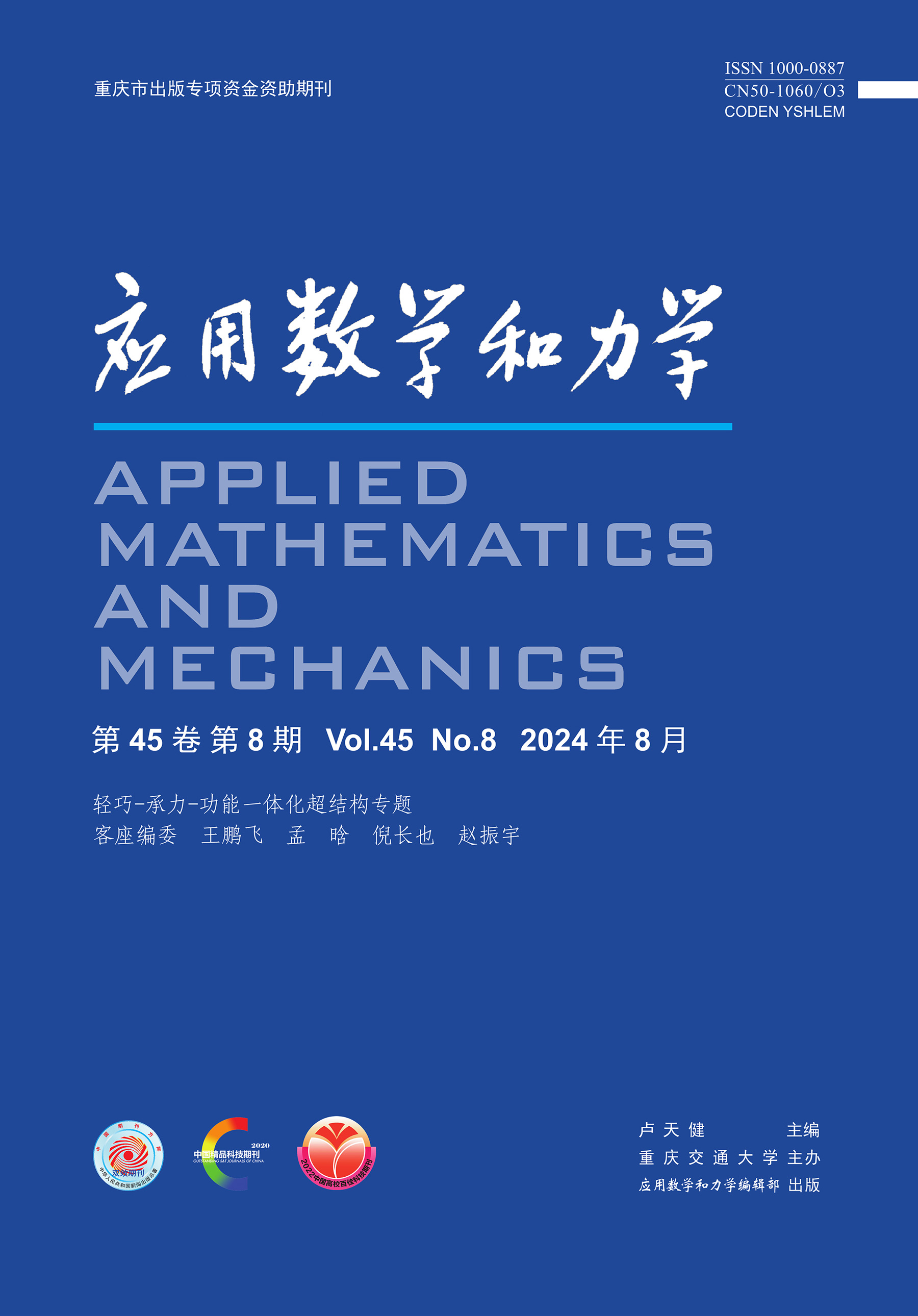Quasi-Static Pressure Characteristics of Explosion Venting Vessel Under Confined Explosion
Q4 Mathematics
引用次数: 0
Abstract
To study the quasi-static pressure characteristics inside the explosion venting vessels, 3 numerical models for cylindrical explosion venting vessels were established with the AUTODYN software, including a one-end-opening explosion venting vessel, an explosion venting vessel with an ejectable venting cover, and an explosion venting vessel with a shear pinned venting cover. Based on the Bernoulli equation, a theoretical simplified model was established to simulate the quasi-static pressure inside the opening explosion venting vessel. A theoretical simplified model based on the energy conservation equation was established to simulate the quasi-static pressure in the vessel with a venting cover under different charge weights. In the end, the effects of the shear pin on the pressure of the explosion venting vessel were discussed in the cases of cutoff or non-cutoff. The numerical models in previous literatures were established. The theoretical quasi-static pressure results are in good agreement with the experimental results in the literatures, which verifies the reliability of the proposed theoretical calculation method. The results show that, the internal pressure of the open explosion venting vessel decays rapidly, and the quasi-static stage lasts for a short time. The theoretical simplified model based on the Bernoulli equation can better predict the time when the internal pressure in the explosion venting vessel decays to the atmospheric pressure. The shock wave in the vessel with a venting cover propagates reciprocally along the axial direction. The theoretical model based on the energy conservation equation can better predict the quasi-static pressure during the pressure decaying process. In the case of the non-cutoff shear pin, the quasi-static pressure inside the vessel exhibits an obvious platform effect. Compared with the case without a shear pin, the internal pressure in the vessel with a shear pin will decay basically in the same way after the shear pin with a diameter of 18 mm is cut off, and the venting cover will reach the opening in advance by 0.25 ms. This work mainly provides a theoretical basis and applicable reference for the structural design of explosion venting vessels.密闭爆炸下爆炸通风容器的准静压特性
为了研究爆炸通风容器内部的准静压特性,利用AUTODYN软件建立了3种圆柱形爆炸通风容器的数值模型,包括一端开口的爆炸通风容器、带弹射通风盖的爆炸通风容器和带剪切钉住通风盖的爆炸通风容器。基于伯努利方程,建立了一个理论简化模型来模拟开式爆炸通风容器内的准静压。建立了基于能量守恒方程的理论简化模型,模拟了不同装药重量下带通气盖容器内的准静压。最后讨论了在切断和不切断两种情况下,剪切销对爆炸通风容器压力的影响。建立了前人文献中的数值模型。理论拟静压计算结果与文献实验结果吻合较好,验证了理论计算方法的可靠性。结果表明:开式爆炸通风容器内压衰减迅速,准静态阶段持续时间短;基于伯努利方程的理论简化模型能较好地预测爆炸放空容器内压衰减到大气压力的时间。冲击波在带通气罩的容器内沿轴向往复传播。基于能量守恒方程的理论模型能较好地预测压力衰减过程中的准静压。在非截止剪切销的情况下,容器内准静压表现出明显的平台效应。与不带剪切销的情况相比,带剪切销的容器内压在切断直径为18mm的剪切销后,其衰减方式基本相同,排气盖提前0.25 ms到达开口。本工作主要为防爆容器的结构设计提供理论依据和应用参考。
本文章由计算机程序翻译,如有差异,请以英文原文为准。
求助全文
约1分钟内获得全文
求助全文
来源期刊

应用数学和力学
Mathematics-Applied Mathematics
CiteScore
1.20
自引率
0.00%
发文量
6042
期刊介绍:
Applied Mathematics and Mechanics was founded in 1980 by CHIEN Wei-zang, a celebrated Chinese scientist in mechanics and mathematics. The current editor in chief is Professor LU Tianjian from Nanjing University of Aeronautics and Astronautics. The Journal was a quarterly in the beginning, a bimonthly the next year, and then a monthly ever since 1985. It carries original research papers on mechanics, mathematical methods in mechanics and interdisciplinary mechanics based on artificial intelligence mathematics. It also strengthens attention to mechanical issues in interdisciplinary fields such as mechanics and information networks, system control, life sciences, ecological sciences, new energy, and new materials, making due contributions to promoting the development of new productive forces.
 求助内容:
求助内容: 应助结果提醒方式:
应助结果提醒方式:


